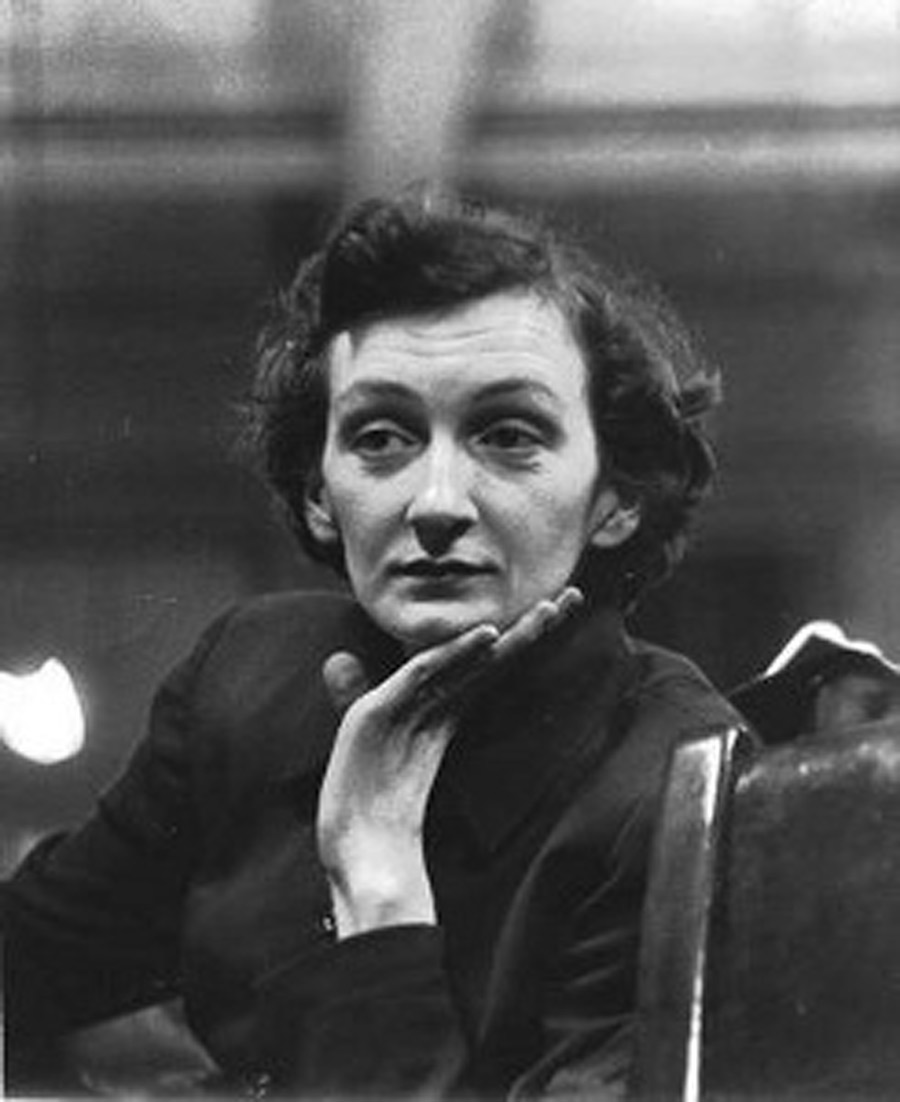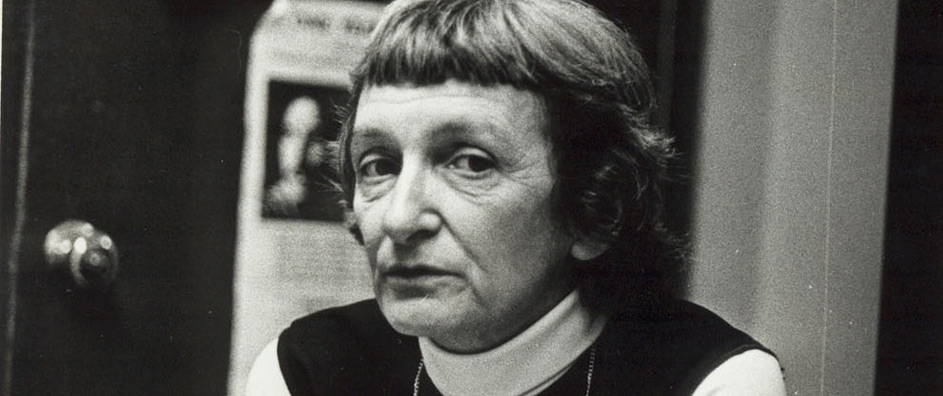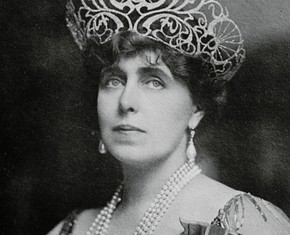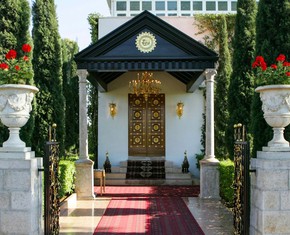The views expressed in our content reflect individual perspectives and do not represent the authoritative views of the Baha'i Faith.
Decency, goodness, action, and courage—we all aspire to those wonderful human qualities.
So let’s consider the decency, goodness, action and courage of the pioneering civil rights activist Anne Braden. A white Southerner, Braden was vilified for her belief that all people are created equal and therefore should have equal rights and opportunities. She was called a traitor to her race and labeled a Communist. But each challenge, each attack, served to strengthen her resolve rather than frighten her into submission. She would not be silenced. Instead her determination grew as did her strength to persevere.
Anne’s curiosity on the subject of racial inequality began in childhood. She wrote in her memoir, The Wall Between, that she felt a sense of exaltation when her Episcopalian priest intoned: “O God, who hast made of one blood all nations of men for to dwell on the face of the whole earth.” She loved feeling a part of something so big and unifying.
But Anne also felt confused, because she had begun to note that for some reason, Black people didn’t seem to be included in this worldwide embrace—at least not in her town.
She said, “The pictures on the Sunday School walls showed Jesus surrounded by children of all colors, the black and the yellow along with the white—all sitting in a circle together …. I knew some Negro children … But we did not sit in a circle together. We did not sit anywhere together.” – Anne Braden, The Wall Between, p. 22.
Anne Braden went into journalism, and while on the crime beat the subtle racism in the justice system became all too apparent. “In covering the Birmingham courthouse, I soon learned that there were two kinds of justice, one for whites and one for Negroes. If a Negro killed a white man, that was a capital crime; if a white man killed a Negro, there were usually “extenuating circumstances” if not outright justification; if a Negro killed a Negro that was just a “nigger” murder—worth at most a year or so in prison.” – Ibid., p. 28.
Anne married fellow reporter Carl Braden and together they dedicated themselves to breaking down barriers and doing what is right and just—and oh, did they pay for it.
The Baha’i teachings say:
Do not busy yourselves in your own concerns; let your thoughts be fixed upon that which will rehabilitate the fortunes of mankind and sanctify the hearts and souls of men. This can best be achieved through pure and holy deeds, through a virtuous life and a goodly behavior. – Baha’u’llah, Gleanings from the Writings of Baha’u’llah, pp. 93-94.

Anne Braden
Well, that’s what the Bradens did. Anne and Carl became famous for one daring act in 1954. In spite of the successful Jim Crow “blockbusting” tactics of realtors, the Bradens, along with a few other white homeowners, refused to sell their homes and relocate when Blacks began moving into their neighborhood in Shively, Kentucky, an all-white suburb of Louisville. So when Andrew and Charlotte Wade, African-American acquaintances from the Braden’s civil rights activities, couldn’t find a home that fit their needs in any black neighborhoods, they began looking in all-white areas—but each time they attempted to purchase a home they were refused. So the Wades asked Carl and Anne to buy a home in their own name, and once the sale closed to deed it over to them.
Hesitant at first, Anne thought about the success they’d had in their own neighborhood and figured there’d be outrage in the beginning, but that when neighbors came to know the Wades and what good people they were, attitudes would change. Wrong! To say they underestimated the neighbors’ reactions would in itself be a gross understatement. Crowds gathered and jeered at them. They burned a cross on the Wade’s front lawn. Shots came right through their windows. The mob mentality grew and spread to the Braden home. Anonymous telephone threats were received, and they began to fear for their children. But when told all would calm down if they’d convince the Wades to leave, they felt they just had to take a stand. Carl issued this statement: “We feel that every man has a right to live where he wants, regardless of the color of his skin. This is a test of democracy. Either you practice what you preach or you shut up about believing in democracy.” – Anne Braden, The Wall Between, p. 69.
Next the Wade home was bombed. Government officials, the clergy, newspaper editors, all attacked the Bradens. They even accused them of planting the bomb themselves, alleging it was a Communist plot to foment chaos. Carl and Anne were arrested. She was eventually released, but he was tried and convicted on grounds of sedition and sentenced to five years in prison. They filed an appeal and bail was set at $40,000, a fortune in 1955. He sat in prison for seven months, sometimes in solitary, until Anne succeeded in raising the funds for his release.
In April 1956, his conviction was reversed. He was truly free again. Anne’s book The Wall Between came out in 1958, a reporter’s first-hand account to answer everyone’s curiosity about the sale, the persecutions, the arrests, the trial, and its aftermath.
The Reverend Martin Luther King, Jr., according to the King Encyclopedia at Stanford University, “… singled out Anne Braden as one of the white southerners who understood and was committed to the civil rights movement.”
After years of struggle, the Anne Braden Institute for Social Justice Research at the University of Louisville was established in 2006. In 1989 the ACLU honored her as their very first recipient of the Roger Baldwin Medal of Liberty. She and Carl were inducted into the Kentucky Civil Rights Hall of Fame in 2001. The Wall Between was re-released in 1999 with the addition of a foreword by civil rights leader Julian Bond.
A life lived as fully and honestly as Anne’s can’t help but inspire others. Bob Zellner, the first white staff member of the Student Nonviolent Coordinating Committee said, “If it was Rosa Parks and Martin Luther King who convinced me to join the struggle, it was Anne Braden who showed me how to do it.” A song in her honor by hip hop group Flobots is simply titled Anne Braden, and a documentary on her life has been released titled Anne Braden: Southern Patriot.
I think of all Anne Braden endured, and yet she never gave up or gave in. She just kept going. She exemplified these beautiful qualities Abdu’l-Baha wished for all of us:
… to exercise mildness and forbearance and calm, to be sincere, amenable, clement and compassionate; to have resolution and courage, trustworthiness and energy, to strive and struggle, to be generous, loyal, without malice, to have zeal and a sense of honor, to be high-minded and magnanimous, and to have regard for the rights of others. – Abdu’l-Baha, The Secret of Divine Civilization, p. 40.
You May Also Like
Comments

















What a wonderful story.
What a wonderful story.